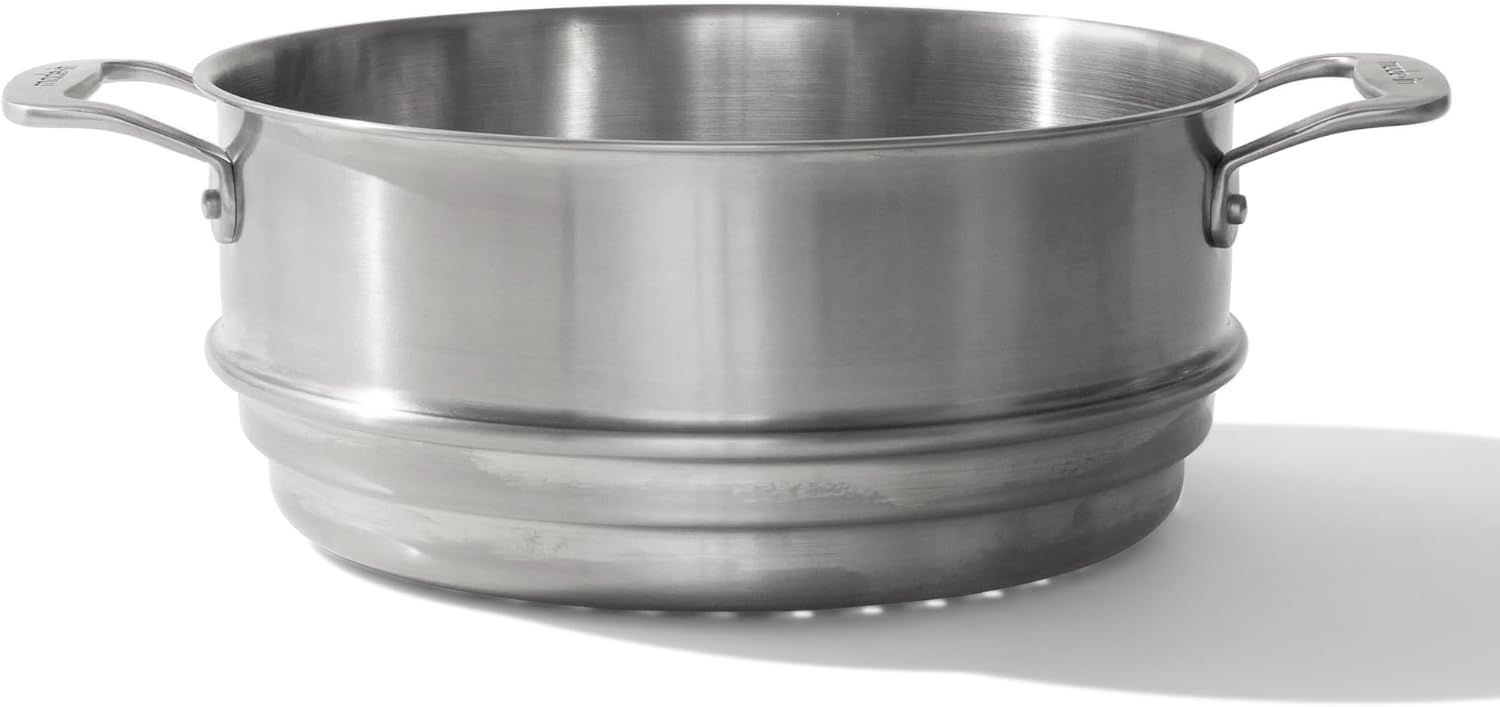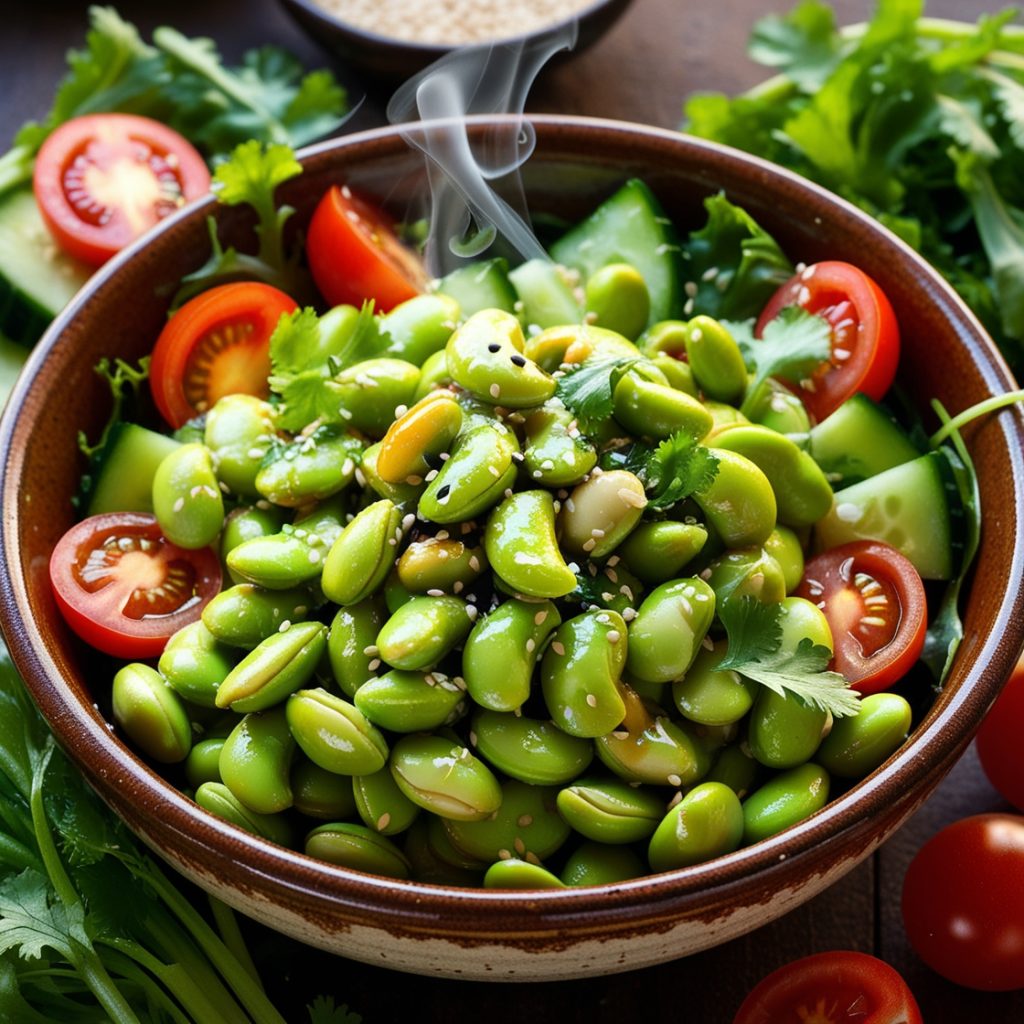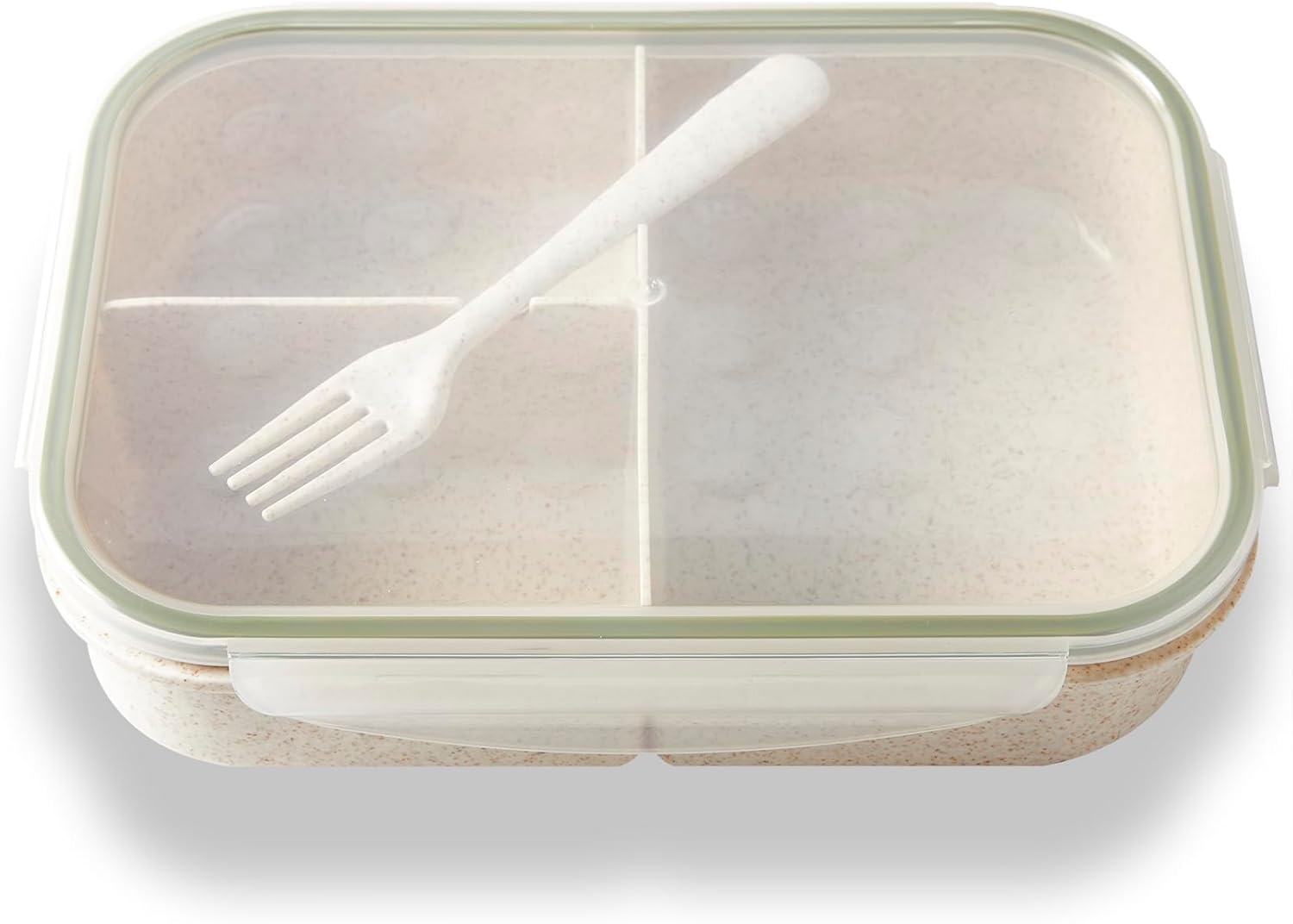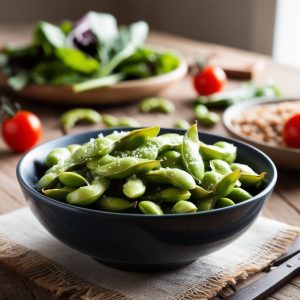There was a time when the keto diet surged in popularity among people eager to shed weight quickly. At first, I wondered if it might be the right approach for me, too. But after digging deeper into the science, I realized it wasn’t as healthy as it seemed. Both Dr. Joel Fuhrman, an advocate of the Nutritarian diet, and Dr. Michael Greger, founder of NutritionFacts.org, strongly caution against keto for long-term health. You’ll soon see why. But first, let’s tackle the real question: Is edamame keto-friendly?
I’ve come to believe that edamame deserves far more recognition than just being judged by its carb count. This humble soybean is a nutrient-dense food with benefits that extend well beyond fitting into diet trends. My goal here is to share evidence-based insights into how edamame fits within different dietary approaches, while also looking honestly at the risks tied to ketogenic eating.
What Exactly Is the Keto Diet?
The ketogenic diet is designed to push the body into ketosis—a metabolic state where fat, not glucose, becomes the primary energy source. To achieve this, carbs are slashed to just 20–50 grams of net carbs per day. Net carbs are total carbohydrates minus fiber, a number keto followers track obsessively.
A typical keto breakdown looks like this:
- High fat: 70–80% of daily calories
- Moderate protein: 20–25%
- Very low carbs: less than 10%
This framework excludes nutrient-rich foods like legumes, fruit, and whole grains. While the diet often triggers quick weight loss, the rigid macronutrient ratios raise concerns about both sustainability and long-term health.
Why Experts Push Back Against Keto
Dr. Fuhrman criticizes keto for its reliance on animal fats and proteins, which he argues heighten risks of cancer, cardiovascular disease, and kidney problems. He also highlights what’s missing: protective plant compounds and fiber. In his view, constipation, nutrient deficiencies, and poor gut health are inevitable when these foods are restricted. While he acknowledges its role in epilepsy treatment, he believes keto is unsuitable for general health.
Dr. Greger echoes these concerns, pointing to overwhelming evidence that chronic illnesses like heart disease and diabetes are fueled by saturated fat and cholesterol—cornerstones of keto. He emphasizes that plant-based diets not only reduce these risks but also enhance longevity, protect brain health, and lower rates of kidney failure and hypertension. In the end, his message is clear: the keto diet falls short on nutrition and cuts out the very foods that are proven to support long-term health and vitality.

Is Edamame Keto-Friendly?
Technically, yes. A cup of edamame contains about 8 grams of total carbs, much of which is fiber, meaning its net carb impact is low. On a strict ketogenic plan, edamame can fit within daily limits.
But answering the question “Is Edamame Keto-Friendly?” only in terms of numbers misses the bigger picture. Unlike many popular keto foods, edamame offers complete plant protein, iron, folate, magnesium, and vitamin K—nutrients that often fall short in low carb diets. It nourishes the body in ways bacon, butter, and cheese never could. So while it checks the keto box, the real answer to “is edamame keto-friendly?” is that its value lies in the broader health benefits it provides.
Imagine blending your edamame into ultra-smooth, protein-rich dips or silky soups with just a push of a button. That’s where a high-performance blender like the Vitamix E310 comes in. Its variable speeds and self-cleaning function make whipping up whole-food, plant-based delights not only possible—but effortless and inspiring.

Vitamix E310 Explorian Blender, Professional-Grade, 48 oz. Container, Slat
- Variable Speed Control: Ten variable speeds allow you to refine every texture with culinary precision, from the smoothest purées to the heartiest soups
- Pulse Feature: Layer coarse chops over smooth purées for heartier recipes, such as chunky salsas or thick vegetable soups
- 48-ounce Container: Ideal for blending medium batches for small family meals
- Hardened Stainless-Steel Blades: Our aircraft-grade stainless steel blades are designed to handle the toughest ingredients, so from the first blend to the last, you get the same quality results
Fiber and Gut Health: Where Keto Falls Short
One of keto’s biggest blind spots is fiber. By sidelining legumes, fruits, and grains, followers often consume far less than recommended. The result? Poor digestion, imbalanced gut bacteria, and increased long-term disease risk.
Edamame fills that gap beautifully. With 8 grams of fiber per cup, it not only aids digestion but also feeds gut bacteria that produce anti-inflammatory short-chain fatty acids. These compounds strengthen the gut lining, stabilize blood sugar, and support immunity. This is an advantage keto staples like cheese, eggs, and butter can’t replicate.
Steaming edamame is one of the best ways to preserve its fiber, vitamins, and clean taste—no soggy or overcooked pods here. The Made In Stainless Steamer Insert lets you steam with confidence: durable, perfectly sized, and built to last. It makes transforming a plant-protein powerhouse like edamame from raw to ready both simple and satisfying.

Made In Cookware -10″ Stainless Steel Steamer Insert – Pot Strainer – 8 Quart Compatible – 5 Ply Stainless Clad – Professional Cookware
- Total Length: 14.5” | Total Diameter: 10.75” | Total Height: 4.625” | Depth: 4.625” | Weight: 1.9 lbs
- Custom Fit – Designed to pair seamlessly with the Made In 8 QT Stock Pot for efficient steaming
- Everyday Essential – Perfect for steaming vegetables, dumplings, tamales, seafood, and more
- Easy Handling – Removable insert allows for simple lifting, serving, and cleaning
How Edamame Outshines Common Keto Foods
When compared directly, the difference is striking:
- Bacon and butter: Align with keto macros but lack fiber and antioxidants.
- Eggs and cheese: Provide protein but add cholesterol and saturated fat.
- Edamame: Delivers cholesterol-free, complete plant protein along with fiber, vitamins, and minerals.
In short, edamame provides protein quality similar to animal foods but without the baggage of heart risks.

Heart Health and Beyond
Research consistently shows diets high in saturated fat and low in fiber raise LDL cholesterol and harm cardiovascular health. That’s why organizations like the American Heart Association warn against keto.
Edamame, on the other hand, provides omega-3 fatty acids, potassium, and cholesterol-lowering soy proteins. Studies link soy consumption to reduced heart disease risk, healthier arteries, and improved cholesterol profiles. Edamame not only avoids the pitfalls of keto staples but actively protects heart health.
Plant-Based Eating: A Better Framework
Instead of asking whether edamame fits keto, a more meaningful question is: how do plant foods like edamame support long-term health? Evidence overwhelmingly favors plant-based diets built on legumes, vegetables, fruits, and whole grains. They reduce chronic disease risks, promote healthy weight, and increase life expectancy.
Lessons from Longevity Hotspots
Blue Zones, regions known for high numbers of centenarians, offer real world proof. From Okinawa to Sardinia, legumes like soybeans are dietary staples. These communities thrive not because they track macros, but because they eat simple, whole-food, plant-based meals, day after day. I am always inspired by the lifestyle and diet of the people in these regions. Their meals are humble yet deeply nourishing, and their approach to food shows us that longevity is not about restriction but about embracing plants in their most natural and delicious form.
Backed by Science and Sustainability
Modern studies confirm these benefits: soy foods lower LDL cholesterol, improve arterial health, and may reduce cancer risk. Beyond health, plant-based diets require fewer resources and carry a smaller environmental footprint than animal-heavy eating patterns like keto. They’re also easier to maintain—no lists of forbidden foods, just a variety of nourishing plants.
Is Edamame Keto-Friendly? A Perfect Example of Plant Power
Edamame embodies these advantages in one simple food. It’s rich in protein, fiber, vitamins, minerals, and phytonutrients—yet naturally low in calories and free from cholesterol. Unlike quick-fix diets, it supports long-term vitality, resilience, and wellness.
What makes edamame truly special is its versatility. It can be enjoyed warm or cold, as a snack or main dish, tossed into salads, blended into dips, or featured in hearty bowls. Few foods offer such a balance of convenience and nutrition—especially one that appeals to both plant-based eaters and those simply looking for healthier options. In a world where diet trends come and go, edamame stands out as a timeless food that aligns with both modern science and traditional eating patterns, proving that nourishing the body doesn’t have to be complicated.
A Practical Way to Enjoy Edamame
Here’s a simple recipe that brings together great flavor and solid nutrition in one satisfying bowl. What I love about edamame is how easy it is to prepare and how well it blends into almost any type of meal. You can snack on it straight from the pod, toss it into a salad, or let it shine as the main ingredient, and it always manages to make healthy eating feel fresh, simple, and surprisingly delicious.
Garlic Ginger Edamame Bowl
Ingredients
- 2 cups shelled edamame
- 2 cloves garlic, minced
- 1 tablespoon fresh ginger, grated
- 2 tablespoons low-sodium tamari
- 1 tablespoon rice vinegar
- 1 teaspoon sesame oil
- 2 cups mixed greens
- 1 cup cucumber, diced
- 1 cup cherry tomatoes, halved
- 2 tablespoons sesame seeds
- Fresh cilantro for garnish

Instructions
- Steam edamame until tender.
- Whisk garlic, ginger, tamari, vinegar, and sesame oil.
- Toss edamame with half the dressing.
- Arrange greens, cucumber, and tomatoes in bowls.
- Top with seasoned edamame, drizzle with remaining dressing, and sprinkle with sesame seeds and cilantro.
This bowl provides protein, fiber, healthy fats, and a colorful mix of nutrients that outshine any keto snack.
Eating whole, plant-powered bowls is one thing — having a container you actually enjoy using is another. The SEVENY Leak-Proof BPA-Free Eco Bento Box keeps your Garlic Ginger Edamame Bowl (or any hearty plant-based meal) neat, fresh, and easy to pack. Perfect for work, travel, or meal prep—so you stay nourished no matter where you are.

SEVENY Bento Box Natural Wheat Fiber Material,Ideal Leak-Proof Bento Box Adults,Lunch Box for Women,BPA-Free Lunch Box,Reusable Meal Prep Container for Body Builders, White
- < ENVIRONMENTALLY RESPONSIBLE > : Made from Natural Wheat Fiber, this lunch box is an environmentally conscious choice for those looking to reduce plastic use.
- < DESIGNED FOR ADULTS > : Ideal for office ladies and bodybuilders, it’s perfect for portion control and meal prep, ensuring you have healthy meals on the go
- < SAFE & DURABLE > : BPA-free, microwave-safe, and dishwasher-safe, this lunch box is designed to withstand daily use and make cleaning a breeze.
- < SPACIOUS & PRACTICAL > : Featuring multiple compartments to keep your food items separate and fresh, this lunch box makes meal planning easy and convenient.
Breaking Free from Restrictive Diets
The obsession with whether foods are “allowed” or “forbidden” fuels diet culture rather than health. Edamame doesn’t need to fit keto to be worthwhile—it already supports weight management, heart health, and disease prevention on its own.
The bigger picture is clear: sustainable health isn’t about chasing short-term diets but about consistently choosing nutrient-dense whole foods, staying active, managing stress, and resting well.

Clearing Up Soy Myths
You can’t really talk about edamame without touching on the myths that have surrounded soy for decades. One of the most common fears is that soy might interfere with hormones because it contains phytoestrogens, plant compounds that look a little like estrogen. But looking “similar” doesn’t mean they act the same way in the body. In fact, research now shows that these compounds often do the opposite of what people fear, offering protective effects—especially when it comes to lowering the risk of breast cancer in women and supporting overall heart health.
Another lingering concern is that soy lowers testosterone or causes feminizing effects in men. That claim has been studied again and again, and the results are clear: soy does not reduce testosterone. Instead, moderate soy consumption has been linked to better cholesterol levels, stronger bones, and even a lower risk of chronic diseases. For the vast majority of people, enjoying edamame and other soy foods is not only safe but a smart way to add high quality nutrition to a balanced diet.
Frequently Asked Questions
Is Edamame Keto-Friendly?
Yes, it can be. Thanks to its low net carbs and high fiber, edamame fits within ketogenic limits. But its real strength lies in offering complete protein, vitamins, and minerals that go far beyond keto requirements.
Can I eat edamame on a plant-based diet?
Absolutely. It’s one of the best plant-based protein sources and fits seamlessly into balanced, whole food eating.
How much edamame is ideal?
A half to one cup of shelled edamame daily is plenty to deliver meaningful protein and fiber benefits.
Is it safe to eat often?
For most people, yes. Soy allergies aside, research shows regular edamame consumption is safe and beneficial. Concerns about soy hormones have largely been debunked.
What’s a healthier alternative to keto?
A plant-based diet rich in whole foods. Instead of restricting, it emphasizes variety and nutrient density, which is more sustainable for both health and lifestyle.
Choosing Lasting Health
So, is edamame keto-friendly? Yes, in a strict sense—but that’s the least exciting part of its story. The real power of edamame lies in everything it represents about plant-based eating: complete protein, energizing fiber, essential vitamins and minerals, and protective compounds that support your body from the inside out.
Keto may promise quick results, but long-term wellness is built on abundance, not restriction. Diets centered on vibrant, whole plant foods create lasting energy, stronger hearts, healthier guts, and a resilience that no fad diet can match.
Edamame reminds us that food is meant to nourish, not confine. By filling your plate with nutrient-rich, plant-powered choices, you’re not just chasing short-term goals—you’re investing in a healthier, more vibrant future.
Why not start today? Add a serving of edamame to your meals this week and experience how one small change can lead to a stronger, more sustainable path toward lasting health.

*We may earn a commission for purchases made using our links. Please see our disclosure to learn more.



